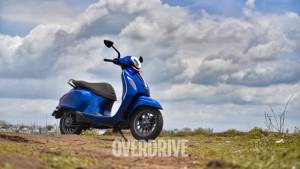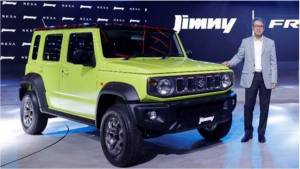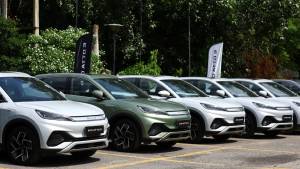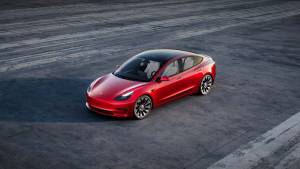ARAI and VSSC to codevelop affordable EV batteries
The Automotive Research Association of India (ARAI) have announced that they will collaborate with the Vikram Sarabhai Space Centre (VSSC) to develop a battery for passenger electric and hybrid vehicles using technology developed for space applications. Once a product has been developed after sufficient testing, ARAI will offer this technology to manufacturers for mass production in order to significantly reduce the cost of these batteries.
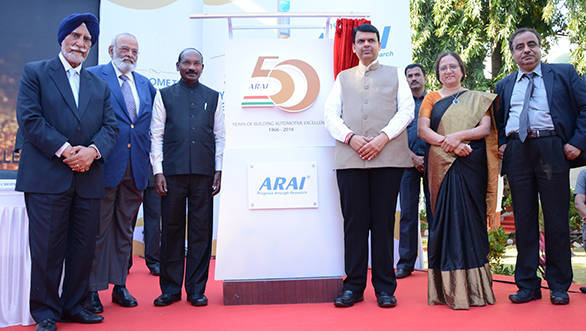
Most electric vehicles and hybrids are produced and sold in other countries, but with the Government's strict import policies, bringing them to India proves to be very expensive. However, this project promotes the Make in India initiative and aims to "bring down the cost of the battery to less than a tenth of what an imported one costs," says Dr K Sivan, director of VSSC.
According to Rashmi Urdhwareshe, ARAI's director, they will work towards developing and testing a prototype within one year. She also said that ARAI would develop battery and thermal management systems to ensure that these batteries are safe for passengers. "Thereafter the industry should come forward to manufacture these batteries for supplying to automobile manufacturers keeping in mind the affordability aspect," she added.
This project will help automotive manufacturers in India develop hybrid and electric vehicles without relying on foreign companies for development of these batteries, thereby reducing the cost of manufacturing. With this kind of technology in the brew, it is very likely that we'll see a lot of affordable electric vehicles hit the market in a couple years.
Press release - ARAI to collaborate with Vikram Sarabhai Space Centre to develop car batteries
| Pune, 4 January 2016: Automotive Research Association of India (ARAI) the country's premier research and testing institution for the automobiles sector, has joined hands with the Vikram Sarabhai Space Centre (VSSC) to develop a battery for passenger cars using technology which is in use to make batteries for space vehicles. ARAI will develop and test batteries for use in electric vehicles and hybrid electric vehicles and then offer to transfer the technology to manufacturers for mass production to bring down significantly the cost of these batteries, ARAI Director Rashmi Urdhwareshe told media on Sunday. K Sivan, director of VSSC, was also present for the announcement. This project envisages leveraging strengths of both ARAI and VSSC, Urdhwareshe said, adding that the focus of the research will be to develop technology in EV / HEV applications for Indian automotive industry and facilitate promotion of green mobility platform. This will also promote import substitution and the government's mission of making in India, she said. Urdhwareshe said VSSC has successfully conducted laboratory level testing to find that the technology used in making batteries for space applications is suitable for automobile sector applications. ARAI will work towards testing of the technology at vehicle level and will come out with a prototype in about one year's time. "Thereafter the industry should come forward to manufacture these batteries for supply to automobile manufacturers keeping in mind the affordability aspect," she added. Urdhwareshe was addressing the media on the occasion of inauguration of the golden jubilee celebrations of ARAI. She appraised the mediapersons on the different research work ARAI has undertaken in the areas including safety, fuel economy, bio-fuel and dual fuel technology and on road vehicular pollution measurement . Urdhwareshe said in addition to developing the battery, ARAI will also develop battery management system and thermal management system for the battery to make it safe for the vehicles and passengers. Dr. K. Sivan, director of VSSC, said the concept of using for automobiles the same battery as is used for space vehicles is proved and now with the collaboration with ARAI, it will be tested for actual use in vehicles. The third stage will be to pass on the technology to a mass manufacturer when complementary technology aspects and volumes will determine the affordability of the battery, Dr Sivan said. The intention is to bring down the cost of the battery to less than a tenth of what an imported one costs, he said. "A number of technologies and materials which we use in space research are suitable for use in human societies provided the mass manufacture of products using these technologies bring costs to an affordable level," Dr Sivan said. Urdhwareshe ARAI has plans to set up an automotive industry museum which will display the journey of India's automobile industry over the years. The blueprint for the project is ready and we are in discussions with various stake holders to finalise the plan, she said. ARAI is preparing to undertake a data collection project for on-road measurement of pollution from diesel vehicles and old vehicles, she said. | |
Related Stories
Top Stories
Latest Videos
Most Popular
- Budget Sportbike Showdown: Kawasaki Ninja 500 vs Aprilia RS 457 vs Yamaha YZF-R3
- Mumbai-Pune Expressway speed restrictions updated
- 2014 Triumph Daytona 675 vs 2024 Kawasaki ZX6R - A Decade of Evolution in Supersport Motorcycles
- 2024 Hyundai Creta vs Toyota Urban Cruiser Hyryder vs Skoda Kushaq comparison review - the hype is real?
- Nissan Magnite EZ-Shift review - is the AMT any good?
